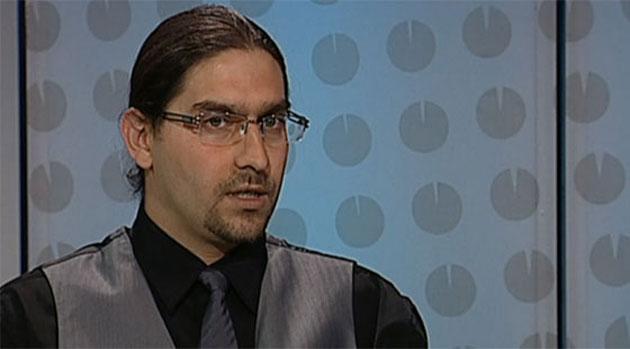The Czech School Inspectorate has asked school directors to count the number of Romani pupils with light mental disability in their schools. The Czech Education Ministry needs this data in order to demonstrate to the European Court of Human Rights in Strasbourg that the number of Romani children ending up with the "light mental disability" label because of prejudice has been decreasing in the Czech Republic.
The response to this has been: Yuck, racism. We don’t separate children into black and white!
To us, a child is a child, we aren’t interested in nationality! Well, that’s not completely true.
In my experience, children in this country really are divided into black and white, because whoever has a surname like Berky, Cína, or Kováč, and in addition to that has a darker complexion and hair, or God forbid darker eyes, has a far greater probability of ending up attending one of what were once called "special schools" with a label of light mental disability. This has been the trend of the past several decades.
Personally, I have often described the "castling maneuver" that took place around 1996 in the Žižkov quarter of Prague, when the vast majority of Romani children attending primary school were all segregated into a single facility on Havlíčkovo Square. The other schools had been "purged" of their Romani pupils.
Many people were then surprised that the school on Havlíčkovo Square ended up looking like it did. I know this from experience, because I was forced to attend that school for some time until someone in my family implored the director of the school on Vlkovka Street, from which I had been "evacuated", to take me back.
What is curious is that the director of an institution where teachers normally beat up Romani children and called them "black mugs" is now speaking out about the upcoming head count. I used to regularly encounter a teaching assistant from her establishment at the tram stop on Seifertova Street and he was usually completely high on drugs.
At one former "special school", as part of the "Roma Mentor" project run by the ROMEA association, I used to teach creative writing. True, most of the pupils were in the upper grades.
They were brilliant children, even if they were sometimes a bit caught up in a "street" way of life and speaking. Frequently, I just could not understand why these children, who were "normal", by and large, were attending a "special school".
That’s why I welcome this data collection, no matter how bad it sounds, and even though I understand that the method for its collection is not completely kosher. If we are to confirm our claims that Romani children are being shunted into special schools on the basis of their ethnicity, I don’t see any better way to prove it.
Numbers are the best argument. Personally, I would also add data collection from the educational counseling centers into the mix.
There is another side to this coin. Healthy children who are being shunted into "special schools" are taking the places of children who genuinely need them.
There isn’t much point in describing how complicated it is to diagnose some forms of light mental disability in children, or even to diagnose worse matters, such as Asperger’s syndrome. Dozens of interviews, tests, trips, rounding up assistants and money – it would be far simpler if the "special schools" just genuinely served those for whom they are intended.
Children with medical conditions are, to a great extent, the affair of these schools. If you are the parent of a child with a medical condition, will you try to enroll your child in a school that essentially cannot serve its purpose because it is full of children who are not supposed to be there?
No, believe me, you won’t. As for integration…
Once my mother came home and said she was going to make us kulajda soup. We responded with uproarious laughter, because we had never eaten anything like that home.
Mom made something vaguely reminiscent of kulajda, but I wouldn’t be to sure about that (maybe the egg part was ok). I got to eat the real thing, though, when it was made by the grandmother of Tonda Novák, my classmate in primary school.
After that, whenever I was offered this dish somewhere else, I didn’t stare like an idiot, I simply politely refused it. I know it’s just a kind of soup (and what’s more, it’s not very good).
It’s all about exchanging information. Tonda Novák got to learn from my family what stuffed cabbage tastes like, and maybe he’ll make it for his children someday.
I learned what kulajda tastes like and that I will never be making it. However, if I go to school only with Romani people, I will never learn about it at all.
I won’t learn anything about Czechs. They won’t learn anything about us Roma.
No, I don’t want Romani children to be segregated, and definitely not into the former "special schools", from where they will have even less of an opportunity to get into a better-quality high school. "Special school" pupils can only dream of attending an academic high school.
That’s why I welcome this data collection. These numbers must be recorded in black and white sometime.
